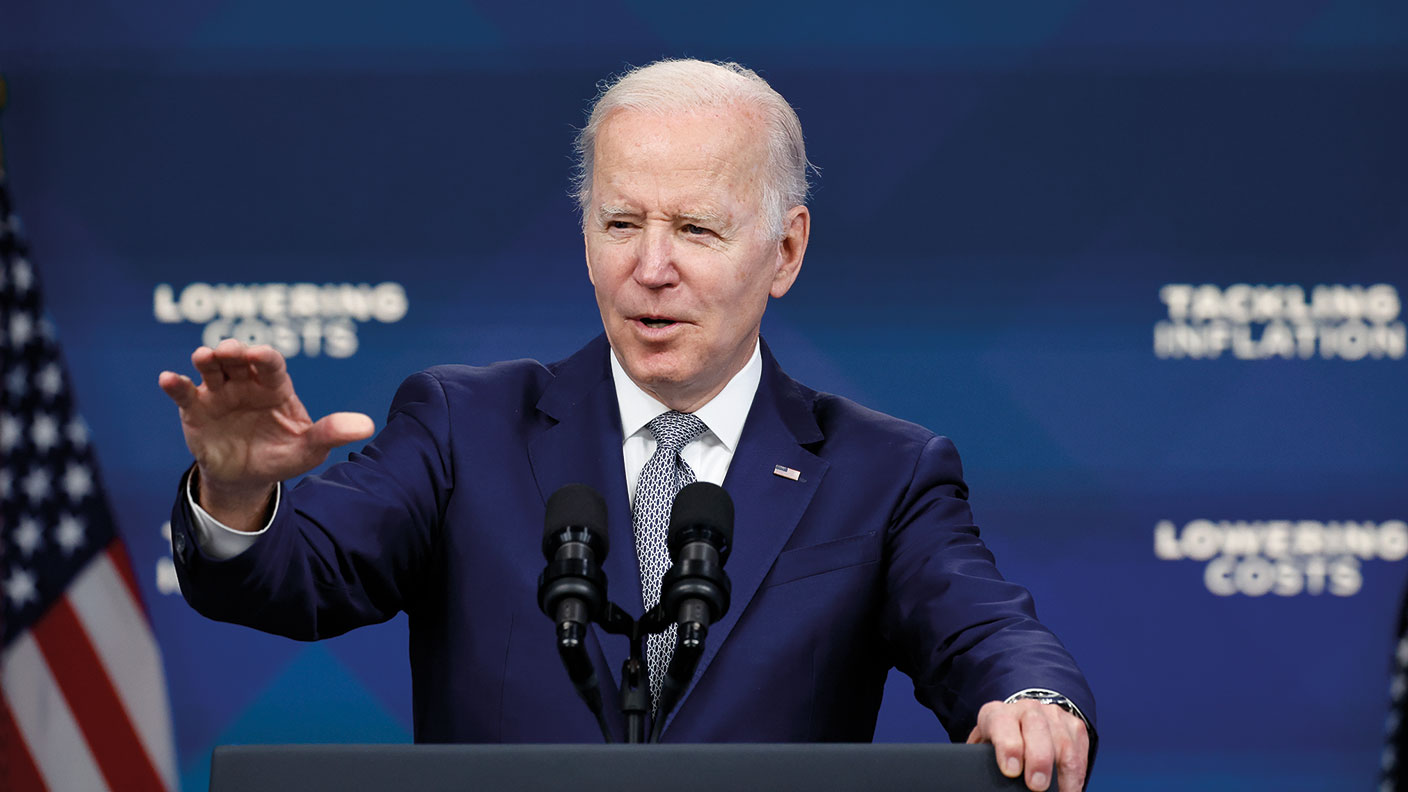Addicted to QE
It's not because investors expect money-printing to end that US Treasury yields are rising, says Merryn Somerset Webb.

Get the latest financial news, insights and expert analysis from our award-winning MoneyWeek team, to help you understand what really matters when it comes to your finances.
You are now subscribed
Your newsletter sign-up was successful
Want to add more newsletters?

Twice daily
MoneyWeek
Get the latest financial news, insights and expert analysis from our award-winning MoneyWeek team, to help you understand what really matters when it comes to your finances.

Four times a week
Look After My Bills
Sign up to our free money-saving newsletter, filled with the latest news and expert advice to help you find the best tips and deals for managing your bills. Start saving today!
I met an expert on drug addiction this week. We talked about the extent to which addicts can be functioning members of society, and what it is that can push them over the edge from functioning to non-functioning. I'll write some more about this and on the economic consequences of our drugs policies on the blog at some point in the coming weeks (those who want a head start on the subject can read Dr Max Rendall's Legalize).
But, rather like many other things, the conversation made me think of quantitative easing (QE) in Britain, and in particular in America. For a long time now we have been almost drowning in newly created electronic money. It has had some pretty trying side effects not least the astonishing transfer of wealth from poor to rich, thanks to regular inflation and soaring asset prices. But so far, our economies are putting up a good show of producing a degree of normality.
Sure, London house prices are behaving rather oddly, the American stock market is hitting uncomfortable highs, and emerging markets are more nervy than usual. But overall, a Martian landing here at any point over the last couple of years, who didn't know and wasn't told that the only thing keeping the show on the road was massive QE, might have come away thinking that things were mostly just fine. A functioning economy.
MoneyWeek
Subscribe to MoneyWeek today and get your first six magazine issues absolutely FREE

Sign up to Money Morning
Don't miss the latest investment and personal finances news, market analysis, plus money-saving tips with our free twice-daily newsletter
Don't miss the latest investment and personal finances news, market analysis, plus money-saving tips with our free twice-daily newsletter
But this period of unstable equilibrium is beginning to look like it can't last much longer. James Ferguson has written a brilliant cover story for us this week on why he thinks that QE in Europe is inevitable (unusually, we all agree on this), and what you should do about it (buy more European stocks). Read it carefully and you'll see that along the way he refers to the American banks as more or less fixed. This really matters.
Why? Because during their struggle to survive, they cut back on lending hugely. That was very deflationary (falling bank lending cuts the money supply). QE was introduced to counter-balance the fall in lending: the Fed printed enough money to compensate for the fall in lending, and there was no deflation. As fast as the banks reduced the supply of money, the Fed raised it again.
However, now that the banks are lending again there is no need for QE. Keeping it (as the Fed has clearly decided to do) simply means that new money is being created by not one, but two sources the Fed and the commercial banks. Instead of a negative meeting a positive and coming out neutral, we have two positives. The natural result of this? Fast inflation. And that, as James points out, is very probably the real reason why inflation expectations and Treasury yields in America have been rising. Not because the market expects QE to end but because it suspects it never will.
Get the latest financial news, insights and expert analysis from our award-winning MoneyWeek team, to help you understand what really matters when it comes to your finances.

-
 Early signs of the AI apocalypse?
Early signs of the AI apocalypse?Uncertainty is rife as investors question what the impact of AI will be.
-
 Reach for the stars to boost Britain's space industry
Reach for the stars to boost Britain's space industryopinion We can’t afford to neglect Britain's space industry. Unfortunately, the government is taking completely the wrong approach, says Matthew Lynn
-
 What to do as the age of cheap money and overpriced equities ends
What to do as the age of cheap money and overpriced equities endsEditor's letter The age of cheap money, overpriced equities and negative interest rates is over. The great bond bull market is over. All this means you will be losing money, says Merryn Somerset Webb. What can you do to protect yourself?
-
 Investors are bullish – but be very careful
Investors are bullish – but be very carefulEditor's letter Many investors are buying the dip, convinced the latest upswing is the start of a new bull market. The odds are that it’s not, says Andrew Van Sickle. The bear has unfinished business.
-
The MoneyWeek approach to investing
Editor's letter At MoneyWeek, our aim is simple: to give you intelligent and enjoyable commentary on the most important financial stories, and tell you how to profit from them. So how do we do that?
-
 Celebrity bitcoin ads echo the subprime mortgage crisis
Celebrity bitcoin ads echo the subprime mortgage crisisEditor's letter A wave of ads featuring celebrities punting crypto to the masses are reminiscent of how low income Americans were encouraged to take on loans they couldn’t afford, says Merryn Somerset Webb.
-
 Will the UK's property slowdown turn into a house-price crash?
Will the UK's property slowdown turn into a house-price crash?Editor's letter As the cost-of-living crisis intensifies and interest rate rise, it is hard to see reasons for UK house prices to keep rising, says Merryn Somerset Webb.
-
 The unintended consequences of ESG investing
The unintended consequences of ESG investingEditor's letter Many people are refusing to invest in energy companies, citing "ESG" concerns. But we still need fossil fuels, says Merryn Somerset Webb, and will for years to come. Boycotting the sector is a bad idea.
-
 What sardines can teach investors about today's markets
What sardines can teach investors about today's marketsEditor's letter A California tale of “eating sardines” and “trading sardines” can help us divide investments into speculative and real, says Merryn Somerset Webb. Something that's very useful when looking at today’s markets.
-
 The market finally seems to be getting it
The market finally seems to be getting itEditor's letter Reality checks are coming fast to the markets, says Merryn Somerset Webb – with even 2022’s safe havens beginning to reflect recession worries.